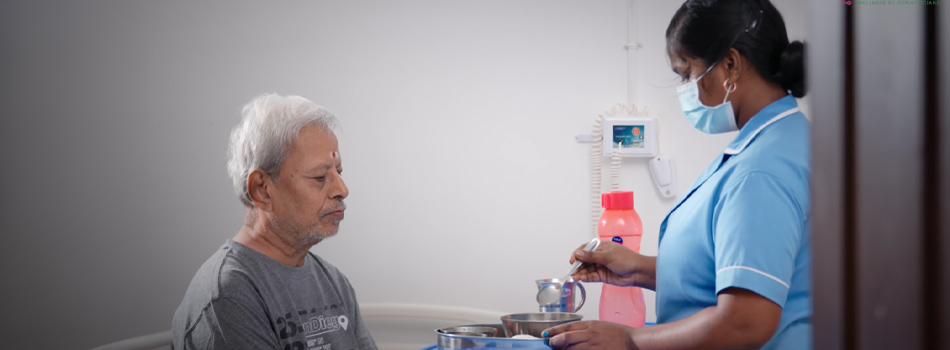
Healthcare is evolving, with more families opting for personalized medical care in the comfort of their homes rather than traditional hospital settings. Home nursing services have gained immense popularity as they offer a tailored approach to patient care, ensuring individualized treatment that meets the unique needs of each person.
With an aging population, rising healthcare costs, and advancements in medical technology, home nursing services are becoming the preferred choice for those who require long-term care, post-surgical recovery, or chronic disease management. This blog explores why personalized healthcare at home is in high demand and how it benefits patients and their families.
The Shift Towards Home-Based Healthcare
Several factors have contributed to the increasing demand for home nursing services:
- Aging Population – With a growing number of elderly individuals needing medical attention, home nursing provides a safer and more comfortable alternative to hospitals or nursing homes.
- Rising Healthcare Costs – Hospital stays and long-term facility care can be expensive. Home nursing offers a more cost-effective solution without compromising on quality.
- Advancements in Telemedicine and Technology – Remote monitoring, video consultations, and wearable health devices have made home-based care more efficient and accessible.
- Personalized Care Preference – Patients and families prefer individualized treatment over the one-size-fits-all approach often seen in hospitals.
What is Personalized Healthcare in Home Nursing?
Personalized healthcare focuses on tailoring medical care to an individual’s specific health conditions, lifestyle, and preferences. Unlike hospital care, where treatment is often generalized, home nursing services create customized care plans that address each patient’s unique needs.
Key aspects of personalized home healthcare include:
-
Customized Treatment Plans
- Home nurses assess the patient’s medical history, condition, and recovery goals.
- Care plans are regularly updated based on progress and health changes.
-
One-on-One Attention
- Unlike hospitals where nurses manage multiple patients, home nursing provides focused care.
- This improves treatment effectiveness and reduces the risk of medical errors.
-
Flexible Scheduling and Care Options
- Patients receive care when they need it—whether part-time, full-time, or overnight assistance.
- Services are tailored to fit family routines and patient comfort.
-
Involvement of Family Members
- Families can actively participate in caregiving, making the patient feel more supported.
- Nurses also educate family members on how to manage the patient’s health effectively.
The Benefits of Personalized Healthcare at Home
1. Faster Recovery and Reduced Hospital Readmissions
- Being in a familiar home environment helps reduce stress and promotes faster healing.
- Continuous monitoring and care prevent complications, reducing the chances of returning to the hospital.
2. Comfort and Independence
- Home nursing allows patients to maintain their daily routines without the restrictive environment of a hospital.
- Elderly patients, in particular, feel more comfortable receiving care in their homes.
3. Cost-Effective Healthcare Solution
- Home nursing services can be more affordable than extended hospital stays or assisted living facilities.
- Patients save on hospital fees, travel expenses, and unnecessary medical procedures.
4. Comprehensive Care for Chronic Illnesses
- Patients with conditions such as diabetes, heart disease, or respiratory illnesses receive ongoing medical support.
- Regular check-ups, medication management, and dietary guidance help in long-term disease control.
5. Emotional and Psychological Support
- Patients receiving care at home experience lower levels of anxiety and depression.
- Nurses provide companionship, ensuring that patients do not feel isolated.
6. Specialized Medical Services
- Many home nursing providers offer specialized services, including:
- Post-surgical care – Wound management, pain relief, and mobility support.
- Palliative care – Comfort-focused care for terminally ill patients.
- Rehabilitation therapy – Physical therapy for stroke or injury recovery.
Who Can Benefit from Personalized Home Nursing?
Home nursing services are ideal for:
- Elderly individuals needing daily medical and personal care.
- Post-surgical patients recovering from major operations like knee replacements or heart surgery.
- Patients with chronic conditions requiring long-term management.
- Individuals with mobility issues who cannot frequently visit hospitals.
- People requiring palliative care who prefer spending their final days at home.
Choosing the Right Home Nursing Service for Personalized Care
If you’re considering home nursing for a loved one, here’s how to ensure you select the right provider:
- Check Credentials and Experience – Ensure the provider has certified nurses and trained professionals.
- Assess the Range of Services – Look for a service that offers tailored care plans based on specific health conditions.
- Evaluate Their Flexibility – The provider should be able to adjust services according to changing patient needs.
- Read Reviews and Testimonials – Look for patient feedback and recommendations to ensure quality service.
- Understand the Cost and Insurance Options – Get a clear breakdown of costs and check if the provider accepts insurance.
The Future of Personalized Home Healthcare
The future of home nursing services is promising, with technology playing a significant role in enhancing personalized care. Some advancements to look forward to include:
- AI-Driven Healthcare Monitoring – Wearable devices that track vital signs and alert nurses to any health concerns.
- Telehealth Integration – Virtual consultations with doctors for real-time diagnosis and treatment adjustments.
- Smart Medication Management – Automated reminders and dispensing systems to prevent missed doses.
- Robotics and Assistive Technology – Devices that help with mobility support and rehabilitation exercises.
As healthcare becomes more patient-centric, personalized home nursing services will continue to grow, offering better, more effective care solutions.
Conclusion
The demand for home nursing services is increasing as more families recognize the benefits of personalized healthcare. Whether for elderly care, post-surgical recovery, or chronic disease management, home nursing ensures patients receive high-quality medical attention while enjoying the comfort of their homes. By choosing a reliable home nursing provider, families can ensure their loved ones receive the best possible care tailored to their unique needs.





Leave a Reply